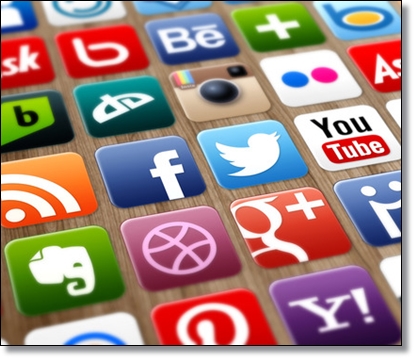Social Media and Nigeria’s Democratic Space

 |
The power of social media played a prominent role at the Ekiti and Osun states governorship elections. In the Ekiti State governorship election, accredited election and citizens observers, civil society situation room, APC, PDP and INEC situation rooms deployed observers to the field that relied mainly on SMS, WhatsApp, Twitter, Facebook, BBM, and Instagram, for incidents reports from the field.
Three hours after voting commenced, observers and citizens started broadcasting election results announced in their respective voting centres using twitter, facebook, BBM, WhatsApp, and SMS. As elections results in respective voting centres went viral on social media, political parties, citizens and international observers were monitoring social media, tracking and analyzing election results. Although INEC constantly maintained election results cannot be announced using social media, some of us at the Centre for Democracy and Development http://www.cddwestafrica.org/ situation room having monitored the social media knew that APC had lost the Ekiti state governorship election to PDP. Having monitored election results trending on social media, jubilation started in Ado Ekiti, the state capital, before the official announcement of the result by INEC.
At the March 28th, 2015 Nigeria presidential election, social media played a prominent role not only at the electioneering campaign but also at the mandate protection by ensuring election results were broadcast before official announcement by the INEC. Just like in the case of Ekiti and Osun states, few hours after voting started; results started trending on social media. The results made it clear to Nigerians that All Progressive Congress (APC) had won in the Northeast, Northwest, Southwest, and was competing with PDP in the North Central while the People Democratic Party, PDP had led in the Southeast and South-South.
Agitated by the election results trending on the social media, PDP Accused APC of posting fake election results on social media. PDP charged Nigerians to totally disregard results on social media and wait for INEC to announce the official results. Indeed Nigerians waited for the official announcement from INEC but there was no major difference between the results announced by INEC and those trending on social media.
Ekiti, Osun and March 28, 2015 presidential election are suffice examples that show how powerful social media can be in checkmating election rigging. With social media and digital communication increasingly being used as tools for reporting incidents and happening in elections, it becomes important for political parties come to terms with the fact that citizens now have power to monitor election results making it impossible for election results to be changed since the results are already in the public domain waiting for official announcement by INEC. The extent to which social media proves effective in attracting young Nigerians to election activities now makes it possible for citizens’ vote to count. Nigerians have more to gain than lose in the social media sphere that has taken over as a medium of communication among young citizens globally.
The emergence of social media and it’s utilization in elections has obviously frustrated Nigerian politicians and stopped the popular strategy of changing election results by the returning officers in collaboration with political parties. The social media age is a revolution to Nigeria’s democracy. Those who must win elections must win the will of the people. The days of changing election results by the returning officers have gone. By the power of social media, citizens now know who won the election before results are officially announced by the Independent National Electoral Commission, INEC. Ekiti, Osun states governorship and the March 28th, 2015 elections are suffice examples. Social media has become a force and we must live up to this reality.
By Audu Liberty Oseni
The author libertydgreat@gmail.com is Program Officer, Centre for Democracy and Development, Abuja, Nigeria.
